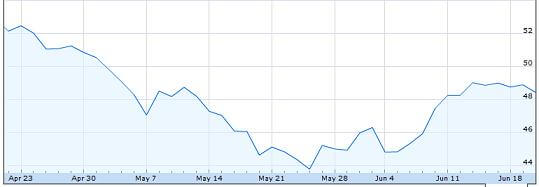
Pharmaceutical giant Novartis has moved one step closer to offering its Multiple Sclerosis medication to the public. On June 10th, an FDA advisory committee unanimously voted that the drug (FTY720 aka fingolimod aka Gilenia) worked as expected. While this does not guarantee that the FDA will approve FTY720 as a MS treatment, it is a very positive sign. If approved, FTY720 will be the first therapy for relapsing MS to be offered as a pill (instead of an injection). In clinical trials, the drug outperformed standard treatments, reducing the relapse rates for Multiple Sclerosis by about half. If it reaches the market, FTY720 could dramatically change the lives of hundreds of thousands of people all over the world.
Multiple sclerosis, characterized by pain as well as physical and neurological disability, is one of the more common and harmful of incurable conditions out there. For those interested in longevity, incurable illnesses are dangerous pitfalls. Living forever wouldn’t be as pleasant if one had to do it while chronically ill. We’ve actually seen the development of a potential cure for MS using surgery. It could make all MS drugs, FTY720 included, obsolete. However, that ‘cure’ is still in the very early stages of research (it’s moving towards clinical trials) and there’s no guarantee it will ultimately prove successful. Even if it does, those with MS will need a stop gap solution for treating their condition. FTY720 represents the next generation in those solutions.
In MS, the body’s own immune system attacks the nervous system, damaging the sheaths of tissue that cover nerve endings. FTY720 acts to restrict the immune system from causing this damage. It influences the body to keep certain immune cells (lymphocytes) in the lymph nodes, which prevents them from being released and attacking nerves and causing MS symptoms. The retention for the lymphocytes is reversible by stopping the FTY720 treatment.
Relapsing Multiple Sclerosis, which can be treated by FTY720, accounts for more than half of MS cases. In this form of the disease, patients experience months or years of remission punctuated by drastic increases in symptoms (the relapses). In phase III clinical trials, FTY720 showed remarkable results for extending the periods between relapses. As reported in the New England Journal of Medicine, relapse rate for placebo was 0.40, but only 0.18 for patients on a dosing regimen of 0.5 mg of FTY20. The relapse rate for 1.25 mg was 0.16. In a related clinical trial, and also published in the NEJM, relapse rates were 0.16 for 0.5 mg, 0.20 for 1.25 mg, and 0.33 for Interferon beta 1a. Interferon (branded as Avonex) is the standard treatment for relapsing MS. FTY720 not only seems to work, it seems to work better than current options.
Which is why the FDA committee gave it a unanimous nod (25-0) for its efficacy. It also voted 23-1 to allow FTY720 be the first drug administered in treatment. In other words, the committee considered it to be at least as effective, if not more effective, as other treatment options.
The relapse rates for 0.5 mg and 1.25 mg are fairly close, but the side effects for lower doses were considerably milder. Those effects included low heart rate, a decline in lung function, and macular edema. Which is why the advisory committee also recommended that the FDA require Novartis to perform clinical trials for doses less than 0.5 mg. Those trials, however, would not need to be completed before Novartis could offer FTY720 to the public.
It seems fairly likely then that the FDA will soon approve FTY720 for general use. Expectedly, stock prices for Novartis rose slightly after the announcement. Besides the improvements in relapse rates, patients can look forward to taking FTY720 orally as a pill. Current treatments (like Avonex) require regular injections, typically self-administered. It’s possible FTY720 is also better at preventing actual nerve damage than Interferon.

While it is likely to be an effective therapy for relapsing MS, FTY720 isn’t an outright cure. Clinical trials are underway to see if it can slow the progression of the disease as well as prolong remission between relapses, but it’s doubtful that any one pill is going to end a patient’s relationship with MS. Instead, FTY720 should be seen as a very promising treatment that could drastically improve the lives of sufferers by decreasing the time they spend with symptoms of the disease. That’s still pretty good. Eventually we’re likely to see other medications which individually, or in conjunction with current treatments, can further reduce the symptoms of MS. One day, we may even have a cure. The hope is that the decades ahead will show steady progress in treating not just Multiple Sclerosis, but all ‘incurable illnesses’, opening the possibility that almost anyone will be able to live an extremely long life without pain or disability. It’s a little early to say for certain, but it looks like Novartis just took a step in that direction. Kudos.
[image credit: Google Finance]
[source: New England Journal of Medicine, Clinical Trials.gov, Novartis]


